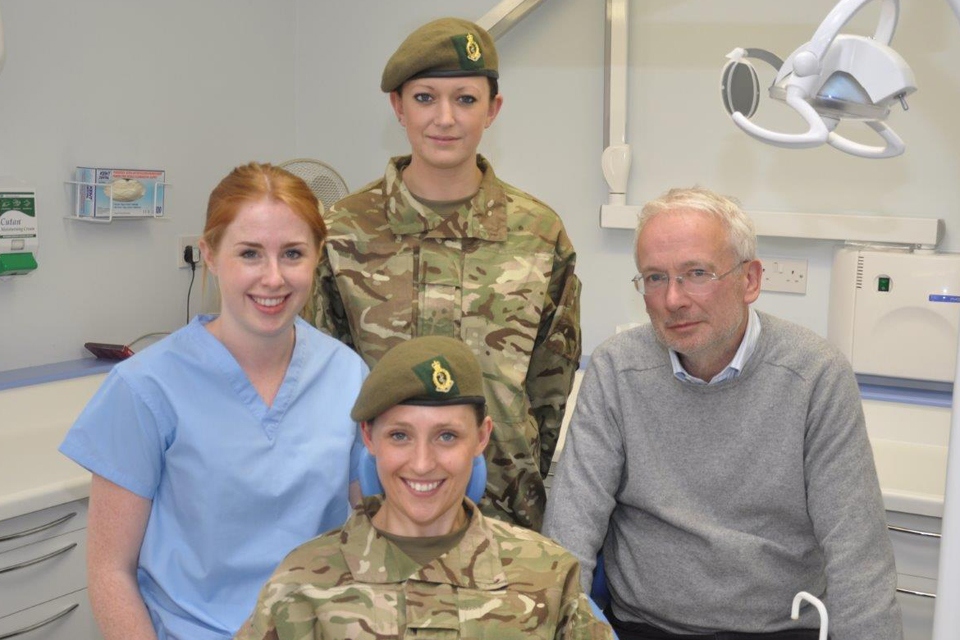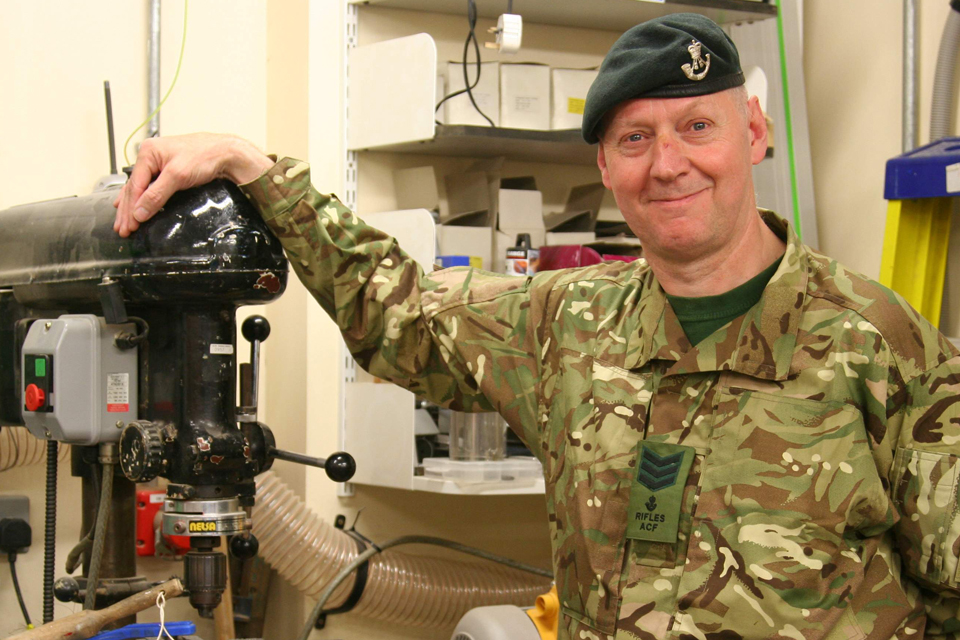Reservists wear their uniforms with pride for Uniform to Work Day
Reservists from all 3 Services have today, 26 June, swapped their civilian clothes for military uniforms to mark Uniform to Work Day.
![Lance Corporal Steve Leyland wearing his uniform to work at St Pancras International station in London [Picture: Sergeant Adrian Harlen, Crown copyright]](https://assets.publishing.service.gov.uk/media/5a61d6f440f0b60abc676e0e/s300_LOND-2013-084-006g.jpg)
Lance Corporal Steve Leyland wearing his uniform to work
Uniform to Work Day highlights the important work that ordinary citizens do as reservists in the Armed Forces, and is part of a week-long series of events building up to Armed Forces Day on Saturday, 29 June.
Reservists make a significant contribution to the nation’s security, at home and overseas, and their military skills are also transferable to their civilian day jobs.
Around 30,000 people across the UK give up their time to be part of the Reserve Forces, and reservists have been deployed more than 25,000 times since 2003 on operations around the globe. Last year some 2,000 reservists provided security at the 2012 London Olympic Games.
A staunch supporter of reservists, Chief of the Defence Staff General Sir David Richards said:
Reservists are a vital part of the Armed Forces. Their unique range of skills gained from both their civilian and military roles makes them invaluable servicemen and women. As the world increases in complexity that is increasingly important and they will be called on more and more.
That is why we are growing the total strength of the reservists to around 44,450 across all 3 Services by 2020. The sacrifices these individuals make is why Churchill was right when he called them ‘twice a citizen’.

Dental nurses Privates Kim Bennington and Angela Benson (seated) wearing their uniforms to work at their practice in York with dentist Hannah Clark and Doctor William Innes [Picture: Crown copyright]
Many reservists have served on operational tours and have a wealth of skills and experience from civilian life that they can bring to their roles in the Armed Forces.
Warrant Officer Tony Matthews works in sales for UPS and has served in the Royal Naval Reserve for more than 30 years. He has been awarded the Queen’s Volunteer Reserves Medal and was involved in providing security at last year’s Olympic Games.
A DJ for 30 years – he performs at the longest-running soul music gig in Europe, the Caister Soul Weekender, Warrant Officer Matthews told how he joined the Royal Naval Reserve in 1982 at a time when he was stuck in a rut and needed to challenge himself. He said:
I’ve never looked back; it’s helped me grow as a person and learn skills invaluable in my civilian job such as leadership and management. I have also travelled extensively and met lifelong friends.
Transferable skills such as drive, confidence and enthusiasm have helped me be successful in both careers. The opportunity to serve my country has given me great pride.

Sergeant Trevor Baker, a youth leader at the 231 Paddington Academy Army Cadet Detachment, wearing his uniform to work at the Institute of Cancer Research in London [Picture: Crown copyright]
Lance Corporal Steve Leyland is a route manager for East Midlands Trains and a member of the Territorial Army (TA) in the Royal Logistic Corps. He manages stations and customer activity and says that the Army’s ethos of teamwork, focus on getting the job done and comradeship is easily transferable to the world of business:
Personally, my TA role is very different to my regular role with East Midlands Trains and the variety is one of the most attractive aspects,” he said. “Employer support is very much appreciated and I’m fortunate that East Midlands Trains’ support has been unwavering.
Neil Micklethwaite, Customer Service Director, East Midlands Trains, recognises the benefits that military experience can bring to the civilian workplace:
East Midlands Trains is an extremely proud supporter of Uniform to Work Day and an official supporter of Armed Forces Day,” he said. “We have a number of reservists across all parts of the business and our support for reservists goes beyond Uniform to Work Day.
It’s something that we are keen to build upon and continue. Our extensive network of high-speed, long-distance and local trains means that we play an active part in the communities that we serve, and this is a good example of the support large businesses can give.
Leading Aircraftwoman Laura Evans is a firefighter and has been an RAF reservist since September 2010. She said:
I joined the Reserves as I was considering joining the Regulars. I then decided to become a firefighter and so joining the Reserves gave me the best of both worlds.
The UK Armed Forces are changing, with greater emphasis being put on the Reserve Forces. The aim is that, by 2020, reservists will be a fully integrated component of the ‘Whole Force’ and will routinely deploy as part of all military operations.